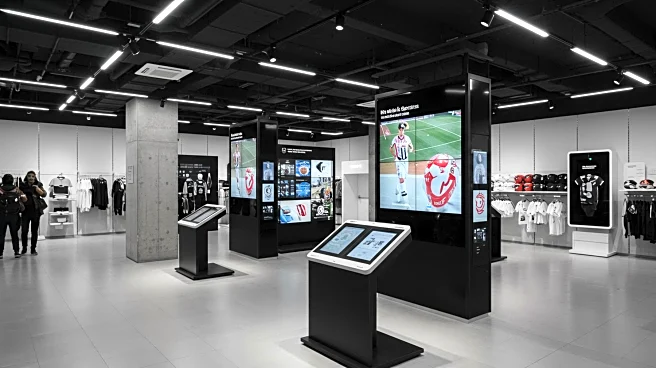What's Happening?
Retailers are increasingly turning to AI-powered video as a key growth engine, moving away from traditional advertising methods. This shift is driven by the need to address declining traffic, rising acquisition costs, and fragmented customer journeys. AI and video together offer retailers the ability to scale storytelling, streamline operations, and convert shoppers more efficiently. The integration of shoppable video formats and AI tools is enabling retailers to reach wider audiences and enhance global operations. This approach is not merely theoretical but is being actively implemented by major retailers such as Asda, B&Q, Ikea, and LG, who are leveraging video to drive engagement and accelerate revenue.
Why It's Important?
The adoption of AI and video in retail signifies a transformative shift in how businesses engage with consumers. By utilizing smarter content strategies, retailers can enhance customer experiences and drive sales more effectively. This approach allows for more personalized and interactive shopping experiences, which can lead to higher conversion rates and customer loyalty. As the retail industry faces increasing competition and changing consumer behaviors, integrating AI and video provides a strategic advantage, enabling businesses to adapt and thrive in a digital-first environment.
What's Next?
Retailers are expected to continue exploring innovative ways to integrate AI and video into their operations. This may involve developing more interactive and personalized video experiences that cater to individual consumer preferences. As technology advances, retailers will likely invest in AI-driven analytics to better understand customer behavior and optimize their marketing strategies. The focus will be on creating seamless and engaging shopping experiences that can drive long-term growth and customer retention.
Beyond the Headlines
The integration of AI and video in retail raises questions about data privacy and the ethical use of consumer information. As retailers collect more data to personalize experiences, they must ensure compliance with privacy regulations and maintain consumer trust. Additionally, the shift towards digital content may impact traditional retail roles, requiring employees to adapt to new technologies and workflows.









